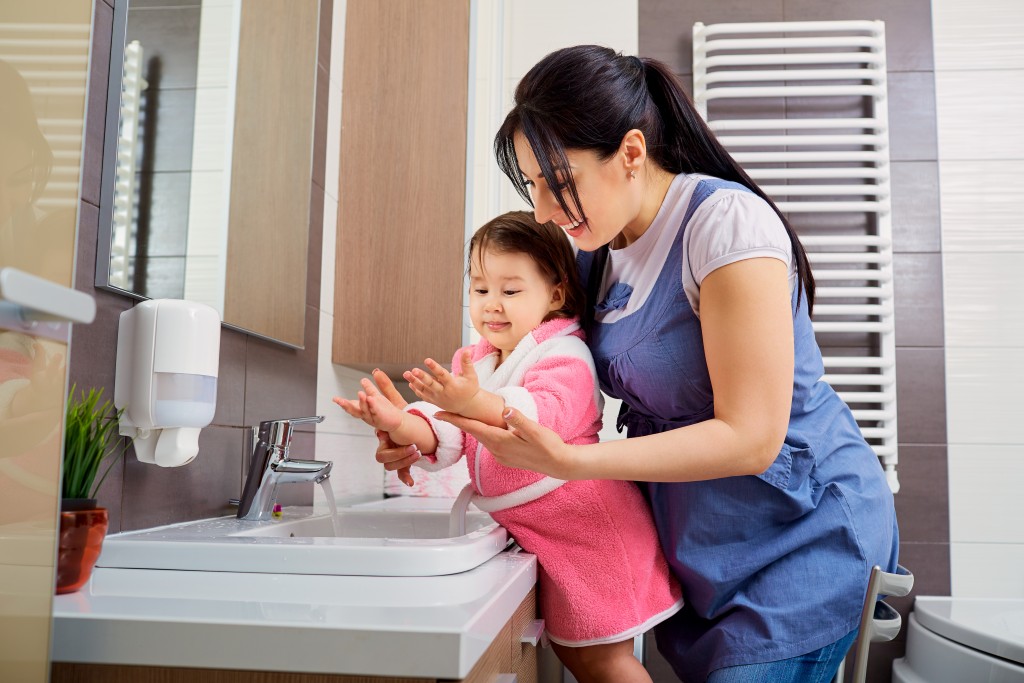Compared to adults, children will have a different outlook on the world and are known for being optimistic. Most of the time, children and adolescents are also bundles of energy and generally don’t want to be tied down to a single place when they should be having fun with friends and loved ones.
However, the pandemic has caused a variety of drastic changes in how we should interact with others. For the most part, children are left baffled on why they aren’t allowed to play outside anymore, why they can’t meet with their friends, and why people are washing their hands more frequently.
Since our children aren’t necessarily too caught up with current events and news, it’s our duty to sit them down and let them know why they should start abiding by safety rules and regulations, especially during uncertain times. But this is easier said than done since most children and adolescents will react using their emotions rather than with their logic. Moreover, most children couldn’t care less about rules since most want to have fun.
So how do we teach our children safety measures during the pandemic? What are some ingenious and engaging ways of teaching them the importance of abiding by such rules? Here’s what you’ll need to do.
Addressing Their Anxiety and Fears
During these trying times, most children are confused about what they should be doing. Naturally, children will rely on their parental figure when it comes to making decisions and physical and emotional support. One of the best ways of teaching them safety is reassuring that they are safe together with their family. Once they do feel safe, they will start building trust with you.
Again, you must tap into their emotional needs when it comes to teaching them rules. Re-affirming them and staying within their positive side can yield better results.
Here are some things that you can do:
- Children will naturally be curious; you should answer their questions about the pandemic simply and honestly that anyone can understand. Let them know how contagious this virus is and why washing their hands and wearing a disposable face mask in public is needed.
- Understand that your child might be a bit distraught over the fact that they can’t play outside or have sleepovers with their friends as they used to. Acknowledge the fact that they are upset. Even though you want to stand your ground with rules, you can still guide them.
- Let them keep in touch with other family members that are not within the same household as you. Children might worry about their grandparents, who are living by themselves. One of the best ways of comforting their anxiety is by reaching out through video calls and phone calls.
- Show them how they should be managing their feelings. Let them know how you are also managing your feelings. If there’s an issue that you need to address, show them the steps that you are willing to do to fix such an issue.
Make Necessary Changes
During the “new normal,” drastic changes are being imposed by authorities and businesses. Your child will also need to start adapting to these changes. As always, everything should start at home.
- It’s important to start making necessary changes to your child’s environment and room. Once they start seeing that you’ve been making a good amount of changes to their room, they’ll start realizing the extent of the situation.
- Instead of using air conditioning units, you can use adjustable high-quality windows for your home instead. Certain studies have found out that the virulent agents of COVID-19 will usually travel through droplets, with most indoor cases being caused by air conditioning units that will recirculate the air.
- It’s important to make it routine for your child to be cleaning their hands after being in public areas. When they get home, they should start segregating clothes that have been used for going out and used at home. Taking a shower should also be done after taking clothes off.

Encourage Meritocracy
Finally, encouraging meritocracy by rewarding your child when they do something right can help enforce a positive form of discipline.
- Try to redirect bad behavior by finding something useful for them to do.
- There are a lot of ways of being creative with your child while still staying safe. DIY artworks, collages, and cutting pieces of magazines are just some fun activities that you can do.
- Reinforcing good behavior through rewards and privileges will generally have a good impact on children. This is especially true when children finish their school assignments, get good grades, or getting along with their siblings.
- Another right way of stopping bad behavior in its tracks is by not responding outright to any mischievous behavior that your child does.
There are practically endless ways of having a good time and keeping your child busy during the pandemic. Still, an essential part of almost any child’s development is by giving them emotional support. Show them the changes you have made in the household to know the extent of the situation and how vital it is to follow the rules and regulations.

